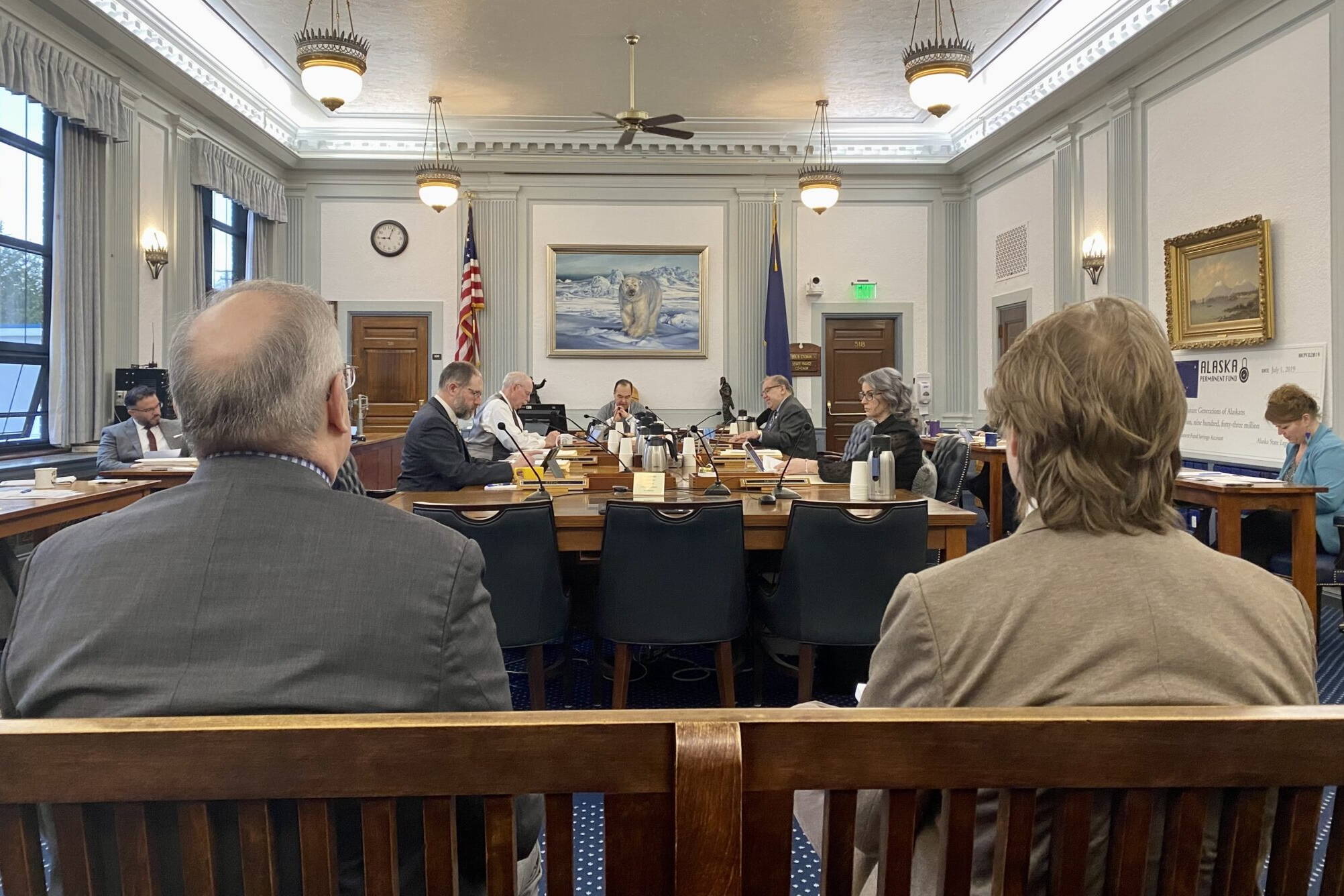Alaska’s rural schools are on track to access faster internet speeds next year despite the governor’s veto of a wide-ranging education bill earlier this month.
With two days until the deadline for federal funding grants, Alaska lawmakers approved legislation that gives rural schools the opportunity to access federal grants to pay for internet speeds of up to 100 megabits per second — four times the current maximum speed.
In a news conference, Senate President Gary Stevens, R-Kodiak, called the House Bill 193 “vital.”
“We’ve heard from schools around the state the difficulties they had been facing with internet speeds, and the difficulty they have in teaching classes when they have to wait for long periods of time to get internet pages to load,” he said, adding the bill’s rapid passage was proof that the Legislature can move quickly.
It now awaits Gov. Mike Dunleavy’s signature.
After the legislation advanced in the House last week, the Senate passed the bill 18 to 1 with Sen. Mike Shower, R-Wasilla, opposed. Sen. Elvi Gray-Jackson, D-Anchorage, was excused absent.
In discussion on the Senate floor, Shower said he was behind the intent of House Bill 193, but wanted to see more options for schools to choose from and for schools to have the ability to access faster speeds if they could do so economically.
“I want to look at how we would make sure that we’re not limiting this to just fiber optic or just satellite or any other emerging technology, because this is a fast-moving game,” he said.
He introduced an amendment to allow schools to purchase speeds even faster than 100 mbps if they could do so for equal or less than the cost, which failed.
Sen. Lyman Hoffman, D-Bethel, sponsored the Senate version of the bill and said its language includes local control for districts to choose any provider they like, including satellite services, called low Earth orbit or LEO services.
“The thrust of this particular piece of legislation is to strive for a consistent level … so that people in rural areas of the state can get the best broadband that they can. This does not eliminate local control. This does not, from my understanding, eliminate LEOs,” he said.
That was a pivotal point for Sen. Shelley Hughes, R-Palmer, who said she sees that satellite services have the potential to save the state significant amounts of money.
Industry advocate Christine O’Connor, director of the Alaska Telecom Association, agreed that alternatives to fiber internet, such as the satellite service Starlink, are acceptable under the federal E-Rate program. At least one school has selected Starlink as its underlying technology for next year, she said, and a handful of other school districts are considering it.
O’Connor said she is excited about the passage of the legislation. “I think this will be a night-and-day difference for our schools,” she said. “Twenty five mbps is better than no internet, but with 100 mbps they can do so much more.”
Lisa Parady, executive director of the Alaska Council of School Administrators, an umbrella organization for associations of school leaders, has supported the legislation since its inception and said she was “ecstatic” about the bipartisan effort to increase internet speeds for rural schools.
“This is a huge step forward for our most rural and remote schools to start to equalize that playing field for connectivity for all students,” she said.
Rep. Bryce Edgmon, I-Dillingham and the key legislator backing HB 193 in the House, said he heard from the governor’s office that Dunleavy is likely to allow it to become law.
Dunleavy vetoed the Senate version of the legislation, Senate Bill 140, after it had been amended to address a wide range of education policies, such increasing the amount of funding per student under the formula in state law.
With a month and a half of the legislative session to go, Senate Majority leadership pointed to broader questions about school funding that have gone unanswered since the governor’s veto. Stevens said there are “a lot of concerns about education” and that the Senate is waiting on the House for a plan.
• Claire Stremple is a reporter based in Juneau who got her start in public radio at KHNS in Haines, and then on the health and environment beat at KTOO in Juneau. This article originally appeared online at alaskabeacon.com. Alaska Beacon, an affiliate of States Newsroom, is an independent, nonpartisan news organization focused on connecting Alaskans to their state government.

